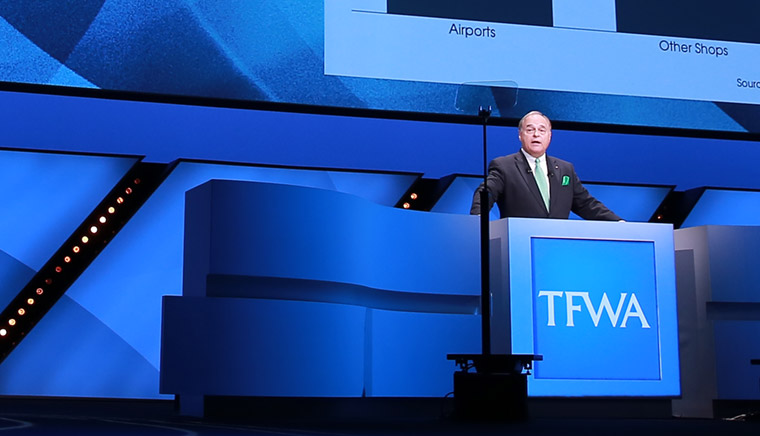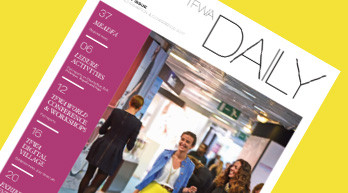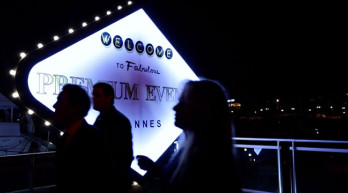


The industry still has grounds for cautious optimism. This time last year, it was looking at the first year-on-year decline in global sales in six years, with 2015 sales 2.7% down on 2014. However in 2016, figures from Generation show that it enjoyed a modest recovery, and year-on-year sales at 63.5 billion US$ were up 2.4%.
In terms of product category performance, once again it was fragrances and cosmetics that performed the best with year-on-year growth of 9.2%, whereas watches and jewellery sales declined by 8.4%. The pressure on the luxury sector, said Juul-Mortensen, continues.
In terms of sales by channel, the strongest performer was ‘other shops’ which grew by 7.3%. Sales here are mainly at downtown and border locations and, increasingly, on board cruise ships, with the key driver of growth the sales of perfume and cosmetics in Asia Pacific downtown locations.
Looking at the figures from a regional perspective, Asia Pacific was once again “the engine room for the industry” with a year-on-year growth of 8.2%.
Future progress is, of course, dependent on what is happening in the wider world, and this year that has never been more unpredictable. When it comes to traffic numbers however, the news is positive.
The ACI’s projections for this year are 8.1 billion passengers, representing year-on-year growth of 5.7%. The first five months of 2017 saw the total of global international passengers increase by 8.8%.
For airports, retail concessions remain their single biggest source of non-aeronautical revenues, and that part of their non-aeronautical revenues grew by 11% in 2015, the most recent figure available.
The power of partnership
In his presentation at TFWA World Exhibition & Conference, the TFWA president stated that trends in consumer behaviour and attitudes continue to have a huge effect on the fortunes of travel retail. While the industry needs to take account of the all-important millennial traveller, “we would be making a mistake if we did this to the exclusion of other groups,” and the single fastest-growing group of potential customers is the older baby boomer generation nearing or just into retirement. Globally, the population aged 60 or over is growing faster than all younger age groups, and population ageing is occurring throughout the world.
“As a generalisation, it would be true to say that in the developed world of Europe and North America, the majority of them are healthier and wealthier than any previous generation of 60 year olds,” said Juul-Mortensen. “In terms of passenger profiles, you only have to look around you in an international airport to see just how many active, affluent mature people are travelling the world like never before.”
Juul-Mortensen went on to speak of the importance of working as a united industry, which faces a number of pivotal challenges. “Chief among them is assuring that our voice is heard by governments in the UK and Europe as Britain’s departure from the EU takes shape. Whatever your thoughts on the wisdom of Brexit, it is an opportunity for us to ensure that travellers between the UK and the EU once again enjoy the benefits of shopping duty free.” This is however not a given, and will require much work behind the scenes.
‘It is as one industry, too, that we need to relieve the pressure we have created on the business model between brands, landlords and retailers that, at its worst, leads to unsustainable commercial agreements between this Trinity,” he continued. He was not necessarily saying that the principles of the concession model are wrong, but; “in many cases the concession terms need to be more fairly balanced if we are to meet the reasonable expectations of all parties.”
We have, he said, to take our destiny into our own hands. “To paraphrase the great 19th century American orator William Jennings Bryan, “Destiny is not a thing to be waited for. It is a thing to be achieved.”



